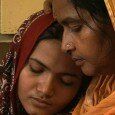By Amar Guriro –
The ashes of Hindus have been lying in local crematoriums all over Sindh for decades for want of legal documents to be issued by the Indian government and official apathy on this side of the border
Elderly Asha Ram, from the sand dunes district of Umerkot in the Thar Desert might possibly have wished for several things when he was younger, but now he has only one yearning: to somehow arrange an Indian visa to take the remains of his son Ganga Ram (who died in 2001) lying in a local temple back to India to be scattered in the holy waters of the Ganges. The final destination for any orthodox Hindu. But, so far, his numerous attempts in this regard have come to nothing.
The repercussions of 1947 still continue to haunt the ordinary people of both countries, and they include even the dead. The Partition not only gave birth to the longest unresolved conflict in South Asia, the Kashmir dispute, but several other thorny issues: sealed borders, continued deployment of forces on either side of the border, three and a half wars and complicated visa procedures, to name a few.
More than sixty years on, the mutual official distrust continues to deprive thousands of families in India and Pakistan from visiting each other – and even to affect the dead. Since the two countries tightened the already-cumbersome visa procedures in the aftermath of the 1971 war, Pakistani Hindus have been unable to take the remains of their dear departed for immersion in the Ganges at Haridwar. While it is true that a majority of the poor and lower-caste Hindus tend to bury their dead, a large number of the affluent continue to cremate them in accordance with their religious belief. And as a compromise, while the ashes of some are scattered in the Indus and the Arabian Sea, there are other families which insist on immersion in the Ganges as a sacred duty, and optimistically retain the vestiges until the time a liberal visa regime is hopefully in place.
Thus the remains of hundreds of Sindhi Hindus of Karachi, Hyderabad, Mirpurkhas, Sanghar, Umerkot and Tharparkar have remained for decades in a state of limbo at various locations across the province. After much media ruckus, the Indian government in 2009 allowed visas for the persons accompanying the ashes of Sindhi Hindus, but only for those residing in Karachi city, whereas there were, and are, hundreds remaining in other districts.
The Hindu population of Sindh confronts a significant problem in how to dispose of the remains of its co-religionists. Perhaps the most common temporary resting places for these ashes are local cremation grounds, temples and even homes. For the Hindus of Karachi the only place to store them is an old library, the Gujjar Hindu Community Library, where the ashes sit in earthen pots. Lining old bookshelves, each urn includes a tag carrying various identification details in the relevant languages – Sindhi, Urdu, Hindi and English. Some are stored under precarious conditions, in flour bags. Housing human remains instead of books, this unique catalogue room is located within the premises of a 150-year-old burial-and-cremation ground, traditionally belonging to the Gujjar Hindu community.
The library itself was established in 1934 by the government of the Bombay Presidency at a time when the Hindus constituted the majority population of Karachi. Following Partition, the library was closed for several years and today nobody seems to know what happened to the collection of books. The huge cremation ground had been given for community use, and the local Hindus proceeded to build the library adjacent to it.
Unsurprisingly, the neglect evident in the cremation ground is reflected in government policy on both sides of the border. On the Indian side, visas for families in mourning have for decades been notoriously difficult to obtain – if not outright impossible to come by. On the other side (ours) there is also little impetus to resolve the situation. In a bid to end the impasse, the Hindu community leaders in Pakistan have urged the reopening of the Indian consulate in Karachi (shut down in 1994), as well as a permanent train to enable families to travel across the border with the remains.
 Interestingly while every Hindu reveres the River Ganges, the Sindhi Hindus who remained in Pakistan at the time of Partition consider the Indus as sacred as the Ganges and they prefer to scatter the remains of their loved ones in this river. When the Gandhian icon and peace activist Dr Nirmala Deshpande died in May 2008, a portion of her ashes was also brought to Pakistan for immersion in the Indus.
Interestingly while every Hindu reveres the River Ganges, the Sindhi Hindus who remained in Pakistan at the time of Partition consider the Indus as sacred as the Ganges and they prefer to scatter the remains of their loved ones in this river. When the Gandhian icon and peace activist Dr Nirmala Deshpande died in May 2008, a portion of her ashes was also brought to Pakistan for immersion in the Indus.
Pakistan’s census of 1998 showed that the Hindu population in Pakistan was around 2.3 million. Now it is said to be closer to five million. Hindus are the second largest religious minority in Pakistan after the Christian. Some of the Hindus leaders claim that the number of Hindus is much higher than the official census.
D.M Maharaj president of the Pakistan Hindu Foundation, a famous organization working for Pakistani Hindus argues that census officials do not include the million of Hindus belonging to lower castes living in the rural areas of Pakistan.
Maharaj said the need goes beyond the Karachi Library and the remains of the several hundred Hindus currently resting in local temples in Karachi and other parts of Sindh, and should also include the roughly two million Hindus residing in other places of the country. Hence a systematic process should be put in place to avoid ‘peculiarities’ such as Karachi’s ‘library room’ cropping up in the rest of the country.
The matter cannot be resolved unless both governments soften the visa policies for their minorities. He added that if the Indian government is serious in deciding the matter, it should make sincere efforts to reopen its Consulate in Karachi. A special train should also be started so that all the bereaved families may take all these decades-old remains to their final resting place and bring peace to the suffering souls.
The Sindh minister for Minority Affairs Dr Mohan Lal however downplayed the controversy maintaining that his government was unaware of the issue. However, if what had been stated was correct, it constituted the worst violation of human rights and that he would ask the federal government to take up the issue with its Indian counterparts at the earliest.
And, there, if one may use the expression, the matter rests.
Amar Guriro, an IVLP Fellow and Karachi based veteran print media journalist is attached with Pakistan Today. He can be reached on his personal email address: [email protected]































































































